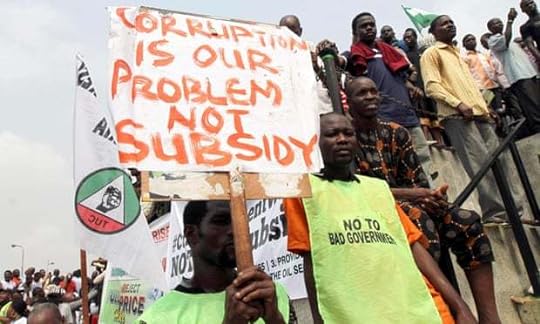What do you think?
Rate this book


368 pages, Paperback
First published January 7, 2017
“Say it out loud so it doesn’t have power over you again. My husband used to beat me. I only married him because I was afraid of being a spinster for the rest of my life. Say it.”
“I was attacked by some men. They tried to rape me. I can’t forget. I’ve tried everything but I can’t forget. Semen everywhere. On my face. On my stomach. In my ears. I can still feel it.”
“In your country, the descendants of the biggest thieves, are they not the ones making the decisions? Your House of Lords. Who made them so? Was it not by oppressing the poor, by swallowing all the land? Today, we are calling them ‘my Lord,’ calling them ‘Honorable.’ Your banks built on the slave trade, Lloyds, have they returned any compensation?”
 come to my blog!
come to my blog!
’As for me,’ she continued, ‘the first time I arrived in Lagos, stepping down at the motor park was a shock. I grew up in the East so to have everybody crowding around you, speaking this language you don’t understand, I fear o. Somebody can sell you in the market, you won’t know.’
‘I speak enough Yoruba but Lagos just has this reputation.’
‘Armed robbers. Ritual killers. Drug dealers. It’s like that and it’s not like that. I always enjoy my visits. There’s something always happening there. Nwangu, let us sleep. You don’t want to be tired when you get to Lagos. Good night.’
‘Thanks. Good night.’
Chike put his temple on the window and continued to watch the road. A year ago, he would never have believed he could leave the army, so set was he in the routine of military life. Yet here he was on his way to Lagos. He was not too old to adopt and adapt new methods. There was a new life waiting for him in Lagos. He would make his way.
He would not bring down the government with the Nigerian Journal. Those days were gone, when newspapermen were feared and hounded and despised and worshipped for their recklessness.
As always, there was too much food. The table was heaped for guests that would never arrive: his dead sister, her imaginary husband and their six obese children.